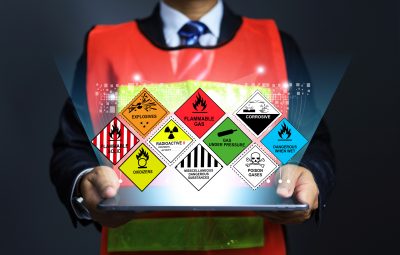Dominick Sisinni is an associate with MacDonald Illig where he is a member of the Firm’s Business Transactions, Real Estate and Banking, and Bankruptcy and Creditors’ Rights Practice Groups. He earned his bachelor’s degree from Gannon University and his Juris Doctor from the University of Notre Dame Law School.
By now, many have heard that medical marijuana has been legalized in Pennsylvania. While medical marijuana has generated much chatter, it hasn’t yet affected the average Pennsylvanian since the law has not been fully implemented. By 2018, however, the state expects that medical marijuana will begin being commercially dispensed to those who need it. This will not only be a “game changer” for those who will receive medical marijuana, but for employers, as well.
The Medical Marijuana Law in Sum
The Medical Marijuana Law (Law) establishes a system for individuals suffering from a covered “serious medical condition” to obtain medical marijuana in Pennsylvania. The covered “serious medical conditions” include the following: cancer, HIV/AIDS, ALS, Parkinson’s disease, MS, intractable spasticity, epilepsy, IBS, neuropathies, Huntington’s disease, Crohn’s disease, PTSD, intractable seizures, glaucoma, sickle cell anemia, chronic pain of neuropathic origin not responsive to traditional treatments, and autism.
Under the Law, an individual suffering from one of these “serious medical conditions” can receive a “certification” from his physician indicating that he is eligible to receive medical marijuana. This “certification” will permit the individual to receive medical marijuana at a licensed dispensary. Dispensaries may only dispense medical marijuana to individuals in the following forms: pill, oil, topical forms, tincture, liquid, or a form able to be administered by vaporization/nebulization. Notably, the Law prohibits medical marijuana in “dry” or “leaf” form that can be smoked.
Importantly for employers, the Law places certified medical marijuana users in a “protected class” by declaring “no employer may discharge, threaten, refuse to hire or otherwise discriminate or retaliate against an employee … solely on the basis of such employee’s status as an individual who is certified to use medical marijuana.”
Since employers violating the Law’s anti-discrimination provision are subject to a $10,000 fine for each violation, now is the time for employers to ensure their policies are in conformity with the Law.
How Can Employers Prepare?
- Update job applications and interview questions. Since the Law prohibits employers from discriminating against those who use medical marijuana, in job interviews and job applications, employers should avoid asking questions about medical marijuana use.
- Modify drug-testing policies. While nothing in the text of the Law specifically precludes employers from drug testing employees (both pre-hire tests and ongoing, random tests for current employees), employers must develop a plan whereby those testing positive for marijuana are able to avoid adverse consequences by demonstrating that their positive test results are due to their certified use of medical marijuana.
- Review job descriptions. The Law permits employers to discipline employees for working while under the influence of medical marijuana “when the employee’s conduct falls below the standard of care normally accepted for that position.” Accordingly, to the extent possible, employers should update their job descriptions to explicitly reference the standard of care a given position requires.
- Follow federal regulations. To the extent your business is subject to any set of federal regulations (e.g., Department of Transportation Regulations requiring zero tolerance for drug use), you must follow them. The Medical Marijuana Law expressly recognizes this fact and imposes no penalty on employers for following existing federal regulations.
- No duty to permit employees to use medical marijuana at work. The Law does not require employers to provide accommodations for employees to use/administer medical marijuana on their premises. The Law further permits employers to discipline employees “for being under the influence in the workplace.”
These are just a few ways that employers can prepare for the full implementation of the Medical Marijuana Law. Employers should continue to monitor this evolving area as new administrative regulations are issued.
If you have any questions about the Medical Marijuana Law and its impact on your business, contact Dominick Sisinni at MacDonald Illig at 814/870-7764 or dsisinni@mijb.com.

















